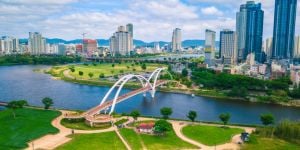
If you are planning to move to South Korea, you are probably wondering about the local healthcare system. Doctors and hospitals in Korea are very developed and use the most modern technology just like in Western countries. In fact, Korean people take sicknesses so seriously that they even visit a local hospital at the slightest symptom of a cold. Quality healthcare is provided to locals and foreigners alike, and medicine and doctor visits are very cheap. Most doctors in South Korea also speak good enough English to assist you with your problems.
It is strongly recommended to learn about the necessary vaccinations before travelling to South Korea, and most importantly, to subscribe to a health and repatriation insurance prior to your departure. However, foreign individuals working in South Korea are included in the local healthcare scheme and receive a healthcare card. The costs for healthcare are automatically deducted from the monthly paycheck, and make up around 5% of the monthly salary. The employer also pays 50% of the foreign employee's healthcare.
Vaccination
To date, no vaccine is compulsory to be allowed to enter South Korea. However, it is better to be updated with the universal vaccines against diphtheria, tetanus, typhoid, hepatitis A and B, polio, etc.. You are also advised to be vaccinated against Japanese encephalitis, as it can be transmitted through mosquito bites between June and October. Note that this is particularly the case in rural areas of South Korea.
Health risks
South Korea has experienced many epidemics during the last few years, namely avian flu and influenza A (H1N1). It is highly recommended to protect yourself against mosquito bites, especially from May to September. Take all necessary hygiene measures, wear long-sleeved clothing and avoid consuming tap water.
If you are experiencing flu-like symptoms, high fever, fatigue, stiffness and nausea, consult a doctor immediately.
Be aware that Korean cuisine includes a lot of spicy dishes prepared with chilli. Some people might encounter stomach problems after eating very hot Korean food. Usually, the body gets used to the different ingredients after a short time. However, should you suffer from stomach pains and/or diarrhoea for a longer period, it is advised to visit a local hospital.
Traditional medicine
Traditional medicine is very popular in South Korea. Every city, however small or big, has hospitals in traditional Korean medicine. While ancient Chinese medicine influenced traditional Korean medicine, Korean traditional medicine has developed unique practices and treatments only found here. Many people use herbal or oriental instead of usual medication. There is very little traditional Korean medicine cannot cure. Doctors are highly educated and use methods like acupuncture, moxibustion, aromatherapy, and meditation to cure illnesses. There are even specialised diet programs involving traditional Korean medicine, which are very popular amongst the population.
Good to know:
The national healthcare also covers treatments at traditional hospitals.
Useful links:
We do our best to provide accurate and up to date information. However, if you have noticed any inaccuracies in this article, please let us know in the comments section below.











